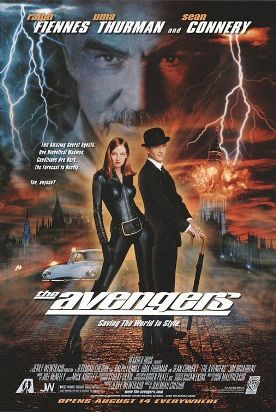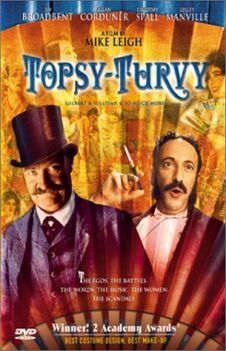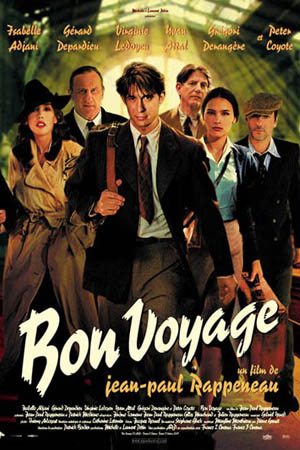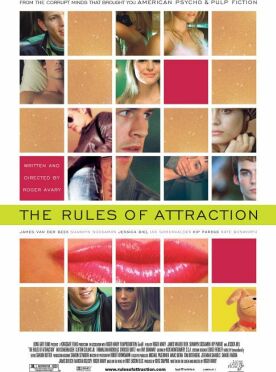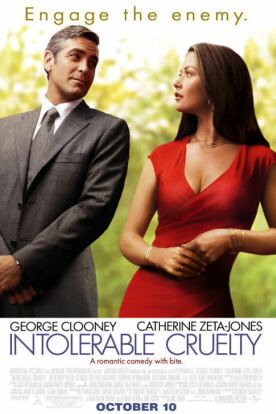Avengers, The
You know when, in the course of watching The Avengers by Jeremiah Chechnik, you see Uma Thurman grappling with herself, while dressed in a rubber cat-suit, on top of a hot air balloon which is itself on the top of Nelson’s Column in Trafalgar Square, which is seen against the snowy backdrop of an apparently deserted London that this has to be the new gold standard of postmodern bogusness. Bogusness squared. Absurdity cubed. It is a tableau, like so many of the film’s scenes, of supposedly witty whimsicality—something that no sophisticated movie-goer anymore expects to remind us of reality. It is only there to be admired for its cleverness. But how clever is it really? There must be many filmgoers besides me who find it not clever enough to overcome the contempt for us implicit in the complete nullity of the drama.
Even Warner Brothers must have some doubts on this score, since it didn’t offer any advance screenings of the picture for critics, who they knew would pan it. The foolishness of that tactic is that critics know that it is a signal that they are expected to pan it, and so they do when they might not have done so otherwise. In this case, however, it is hard to imagine that many of them would have liked it. The film is not only boring in itself, it is boring in a boring—because predictable—way. It is the same way that most movies in our postmodern age are boring, namely through sacrificing plot and characterization, those old fashioned desiderata, to the fashionable gesture and the clever quip. Or the allegedly clever quip. The Avengers is particularly insidious in this way, because the irony and dry wit of the parody Brit is his whole reason for being. The trouble is that the Brit-wit has to be witty as well as Britty, and this wit is not.
There are some crude double entendres and endless supplies of the most basic and predictable of all the situational jokes, which is having your oh-so-proper heroes confronted with hair-raisingly dangerous or excitingly amorous situations suddenly pronounce brightly: “Time for tea!” Stop me if you’ve heard this one before. I wonder if you could get away anymore with putting a drunken Irishman or a mean Scotchman or an amorous Frenchman or a lazy Spaniard or a humorless German in your movie without apology. Yet the phlegmatic Englishman, every bit as much a parody as any of these, is still fair game. Perhaps because we think it not insulting to call a man phlegmatic. But the sense of caricature makes one quite as impatient as any of the above would, I think. It is too familiar, too, well, predictable.
Which fits well with the predictability of the rest of the film. For the umpteenth time we have a high-tech madman bent on world domination and pointlessly brutal in the pursuit of his aims. The filmmakers know that they are giving us boringly familiar stuff and, po mo style, seem to glory in the fact. In one scene, the bad guy, Sir August De Wynter (Sean Connery), confronts a boardroom full of his partners in crime, all of them dressed as giant teddy bears. The ostensible reason is that none of them may know who any of them is, though Sir August knows them all and they all know him. He asks, for no obvious reason, if any of them want to leave the criminal enterprise and two of them raise their paws. Instantly, he kills them both where they sit. Anyone who did not know he was going to do this when he offered them an exit has not been paying attention.
The whole point about such characters is for them to be (a) utterly and pointlessly ruthless and (b) funny at the same time. There were a few titters from the audience when I saw it at the sight of all the Teddy Bears, but we have by now seen too many Tarantino imitations for it to be very funny. Likewise, the giant mechanical wasps who attack Steed (Ralph Fiennes) and Mrs Peel (Uma Thurman) as they tool along in their E-type Jaguar are familiar movie props (since the perfection of computer animation) but have no dramatic impact at all. We are just rounding another familiar corner. Add to this the familiarity of the British irony, the naming of the heads of “the ministry” Mother (Jim Broadbent) and Father (Fiona Shaw), the sudden appearance of Eileen Atkins as the little old lady with the Tommy gun etc. etc.
Likewise in familiar Hollywood fashion, the sexiness of Diana Rigg in the original TV series is hardly translatable into terms that could be understood by Miss Thurman. Instead, she must simply do the Hollywood feminist trick of demonstrating that her skill in such masculine pursuits as fencing and chess is superior even to that of her partner, and of course she has no respect at all for the rules of Steed’s gentleman’s club (Boodles, of course, because it has a funny name), that exclude women. You can’t help wondering, if she’s such a stickler for the equality of the sexes, what is she doing in that cat-suit?
Discover more from James Bowman
Subscribe to get the latest posts to your email.

